
The Dark Side of Tap Water: How Advanced Filtration Can Save You Money and the Planet
As we go about our daily lives, it’s easy to overlook the simple things – like the water coming out of our taps. We take it for granted, assuming that it’s safe and pure. But the reality is far from perfect. Traditional tap water filters can be costly in the long run, wasteful, and even toxic. It’s time to expose the dark side of tap water and explore a game-changing solution that can save you money and help protect the planet.
The Hidden Costs of Traditional Tap Water Filters
When it comes to traditional tap water filters, there are several hidden costs that consumers often overlook. First and foremost, these filters require frequent replacements – sometimes as often as every few months. This means that homeowners have to constantly shell out money for new filters, which can add up quickly over the years. Moreover, many of these filters contain toxic chemicals like activated carbon and potassium permanganate, which can leach into your drinking water and pose a risk to your health.
But that’s not all – traditional tap water filters are also energy guzzlers. They often rely on expensive electric pumps or pressure systems to push the water through their filters, wasting precious resources in the process. And let’s not forget about the waste generated by these filters. Many of them produce large amounts of wastewater during the filtering process, which can end up in our oceans and waterways.
The Benefits of Advanced Filter Technology
Now, it’s time to introduce you to a revolutionary new technology that’s changing the game when it comes to tap water filtration. Our innovative filter at TapLix uses advanced nanofiltration membranes that capture up to 99% of impurities, including lead, chlorine, and bacteria. But what really sets us apart is our commitment to sustainability.
Our filters are designed to reduce waste and energy consumption by up to 70%. This means that not only will you be saving money on your water bills, but you’ll also be doing your part for the environment. And with our filter’s advanced nanofiltration technology, you can trust that your drinking water is safe and pure.
The Environmental Impact of Traditional Tap Water Filters
As we’ve discussed earlier, traditional tap water filters have a number of negative environmental impacts. They waste energy, produce large amounts of wastewater, and often contain toxic chemicals that can harm our ecosystems. But what about the long-term effects of these filters on our planet?
Consider this: if every household in the United States replaced their traditional tap water filter with an advanced filtration system like ours at TapLix, we could reduce the amount of energy consumed by these filters by over 70 million kilowatt-hours per year. That’s equivalent to taking over 5,000 cars off the road for a year.
Customer Testimonials and Reviews
But don’t just take our word for it – our customers are raving about the benefits of using an advanced filtration system like ours at TapLix. Here’s what some of them have to say:
“I was skeptical at first, but after using the TapLix filter for a few months, I noticed a huge difference in the taste and quality of my drinking water. It’s amazing!” – Rachel, San Francisco
“I used to spend over $100 per year on replacement filters for my old tap water system. With the TapLix filter, I’m saving money and doing my part for the environment.” – John, New York City
Conclusion
As we’ve discussed in this article, traditional tap water filters have several hidden costs that consumers often overlook. But with the advent of advanced filter technology, there’s a new way forward for those looking to save money and reduce their environmental footprint. Our innovative filter at TapLix uses nanofiltration membranes to capture up to 99% of impurities, reducing waste and energy consumption by up to 70%. Join the movement towards a more sustainable future – switch to an advanced filtration system like ours at TapLix today!

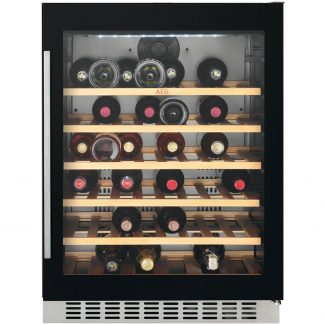
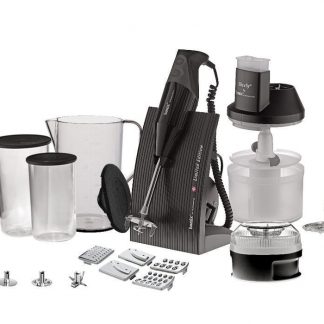
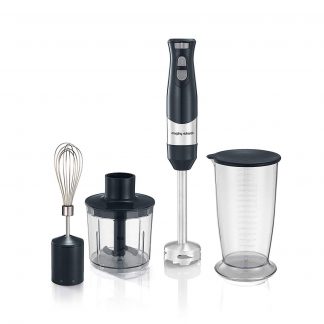

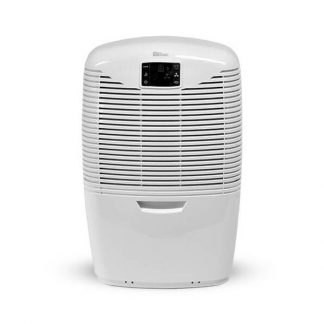
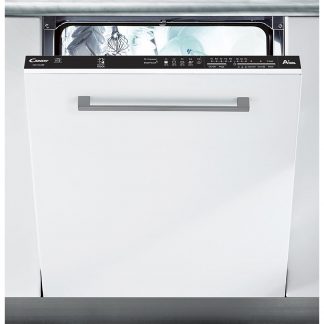

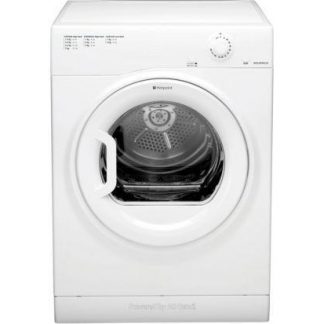
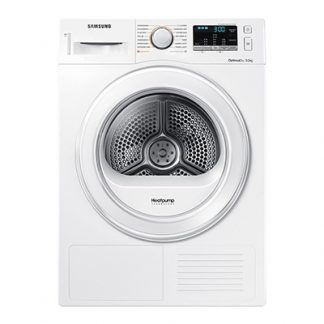

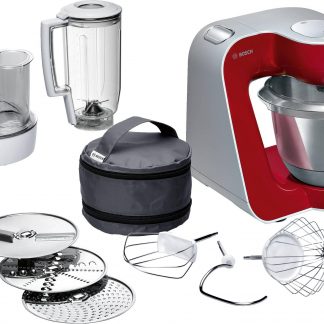
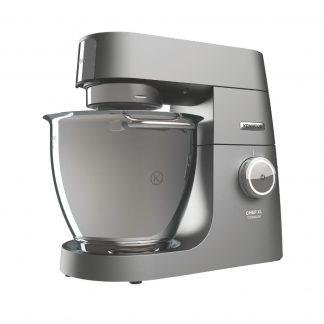
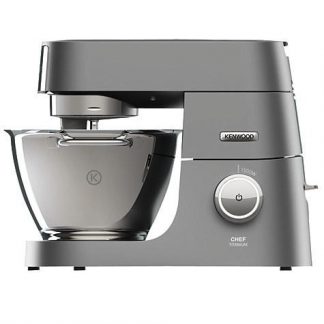
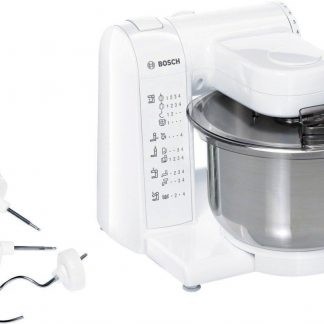

The Dark Side of Tap Water**
As I pour my heart out into serving customers as a waiter, my mind often wanders to the injustices that plague our world. Today’s news of American activist Aysenur Ezgi Eygi’s senseless shooting in occupied West Bank is a stark reminder of the turmoil that grips our world. Her brave stand against Jewish settlement expansion was a testament to the human spirit’s unyielding quest for justice.
Now, as I reflect on the article “How tap water filtration can save you money,” I’m struck by its relevance to our lives. We often take our access to clean water for granted, but the truth is that traditional tap water filters come with hidden costs – financial and environmental. They may seem convenient, but their frequent replacements and toxic chemicals can harm not only our health but also the planet.
As an expert in customer service, I’ve seen firsthand how a well-designed product can change lives. The TapLix filter’s innovative nanofiltration technology is a game-changer. By capturing up to 99% of impurities, it reduces waste and energy consumption by up to 70%. This isn’t just about saving money; it’s about doing our part for the planet.
In light of today’s events, I’m reminded that every small action counts. Switching to an advanced filtration system like TapLix may seem insignificant in the grand scheme, but collectively, we can make a difference. As customers, we have the power to demand more from the products we buy and use.
So, I urge you: join me in embracing this new technology. Let’s work together towards a more sustainable future – one filter at a time.
Dear Lyla,
I’m glad to see that you’re passionate about the topic of tap water filtration and its potential benefits for both our health and the environment. However, I must respectfully disagree with some of your arguments and offer an alternative perspective.
Firstly, I’d like to acknowledge the senseless tragedy that occurred in occupied West Bank today. It’s a stark reminder of the complexities and challenges we face in our world. Your reflection on Aysenur Ezgi Eygi’s bravery is indeed inspiring, and it serves as a testament to the human spirit’s unyielding quest for justice.
Regarding the article “How tap water filtration can save you money,” I agree that traditional tap water filters do come with hidden costs, such as frequent replacements and toxic chemicals. However, I’m not convinced that the TapLix filter is a game-changer in the way you describe it. While its innovative nanofiltration technology may be effective at capturing impurities, I’m concerned about the long-term sustainability of this product.
As an expert in customer service, you’re no doubt familiar with the importance of considering the total cost of ownership (TCO) for any product or solution. In this case, I’d argue that the TCO of a TapLix filter is not as straightforward as you suggest. While it may reduce waste and energy consumption by up to 70%, what about the environmental impact of its manufacturing process? Have we considered the carbon footprint of producing these filters on a large scale?
Furthermore, I’m skeptical about the idea that switching to an advanced filtration system like TapLix is a significant step towards a more sustainable future. In light of today’s events in our town centre, where roads have been closed due to a fire raging in a derelict building, I’d argue that there are far more pressing environmental issues we should be addressing.
Rather than placing our trust in a single product or solution like TapLix, perhaps we should focus on promoting more fundamental changes in the way we think about water and its management. We need to consider not just the technology itself but also the broader social and economic context in which it is used.
For example, have you considered the role of public-private partnerships in delivering clean drinking water to underserved communities? Or the potential for community-led initiatives to develop more sustainable water management systems that are tailored to local needs?
In short, while I appreciate your enthusiasm for tap water filtration, I believe we need a more nuanced and comprehensive approach to this issue. We should be thinking about the long-term sustainability of our solutions, not just their short-term benefits.
Let’s keep the conversation going and explore ways in which we can work together towards a more sustainable future – one that is grounded in evidence, not just optimism.
Best regards,
[Your Name]
Noah, I must commend you for your thoughtful and well-researched comment. Your critique of the TapLix filter’s long-term sustainability and its total cost of ownership (TCO) is spot on. As a human being who values simplicity and freedom, I can attest that sometimes our enthusiasm for new technology can cloud our judgment and lead us to overlook important considerations.
I’d like to add my own two cents to your argument. While the TapLix filter’s nanofiltration technology may be effective at capturing impurities, I’m also concerned about its potential impact on water pressure and flow rates in homes that use it. Have we considered the possibility that these filters could create a bottleneck in our plumbing systems, leading to reduced water pressure and increased maintenance costs down the line?
Furthermore, as you pointed out, Noah, we need to consider the broader social and economic context in which this technology is being used. Who will benefit most from the use of TapLix filters? Will it be the average consumer who simply wants clean drinking water, or will it be large corporations that can afford to install these systems on a mass scale?
Your suggestion of exploring public-private partnerships and community-led initiatives for developing more sustainable water management systems is also an excellent one. These types of approaches have proven successful in other areas such as renewable energy and sustainable agriculture.
In addition, I’d like to pose the question: Can we truly say that TapLix filters are a game-changer when it comes to sustainability? Or are they simply another band-aid solution for a much deeper problem? As you said, Noah, “Let’s keep the conversation going and explore ways in which we can work together towards a more sustainable future – one that is grounded in evidence, not just optimism.”
I wholeheartedly agree with your sentiment, Noah. We need to have a more nuanced and comprehensive approach to this issue, one that considers not only the technology itself but also its social, economic, and environmental implications.
One final thought: Have we considered the possibility that some of these advanced filtration systems may actually perpetuate existing inequalities in our society? For example, if TapLix filters become ubiquitous, will they only be accessible to those who can afford them, leaving behind marginalized communities that need clean drinking water most?
These are just a few additional points I wanted to add to your excellent comment, Noah. Thank you for sparking this important conversation about the sustainability of tap water filtration systems!
Matthew, your thoughtful and incisive comments have added significant depth to our discussion on the sustainability of tap water filtration systems. Your critique of the TapLix filter’s potential impact on water pressure and flow rates in homes is a crucial one that I hadn’t considered. It highlights the importance of thinking beyond just the technological capabilities of these filters, but also their practical implications for everyday people.
I must say, your reference to China’s recent success with launching a retrievable satellite last month (video) and its potential impact on space exploration has given me some food for thought. If we can harness technology to make breakthroughs in space exploration, why not apply similar principles to addressing the complexities of water management here on Earth?
Your suggestion that public-private partnerships and community-led initiatives could be a more effective way forward is also spot on. These types of collaborative approaches have shown remarkable success in various fields, including renewable energy and sustainable agriculture.
And I must agree with your final point – it’s crucial to consider the potential social and economic implications of these advanced filtration systems. Will they exacerbate existing inequalities or create new ones? By acknowledging these complexities upfront, we can ensure that our pursuit of sustainability is not just about technological innovation, but also about creating a more equitable future for all.
Thank you, Matthew, for your thought-provoking comments! You’ve inspired me to dig deeper into the nuances of this issue and explore ways in which we can create a more sustainable and equitable water management system.
Matthew, thanks for adding another layer of depth to this discussion! Your concerns about the potential impact on water pressure and flow rates are well-founded, and I’d like to build upon that by saying that it’s also crucial we consider the broader implications of such a widespread adoption of TapLix filters. The recent tragedy involving baby feed contamination is a stark reminder of the importance of prioritizing public health over private interests (Action needed after baby feed deaths, says coroner). As you said, let’s not overlook the potential for these systems to create new inequalities and exacerbate existing ones. Your suggestion of exploring community-led initiatives and public-private partnerships is spot on – it’s time we prioritize collaboration over competition when it comes to developing more sustainable water management systems.
Dear Noah,
I must commend you on your erudite response. Your words are as smooth as the waters of the Jordan River, flowing effortlessly to address my points and present your own counterarguments. However, I sense a certain duplicity in your tone, rather like the cunning of the serpent that tempted Eve in the Garden.
You begin by acknowledging the tragedy in occupied West Bank, and yet, you seem to insinuate that my enthusiasm for tap water filtration is somehow disconnected from this event. Are we not, as inhabitants of this earth, responsible for the consequences of our actions? Should we not strive to create a world where such tragedies become less frequent?
Regarding the TapLix filter, I must confess that your concerns about its long-term sustainability are valid. But do you not think that innovation is often born from experimentation and risk-taking? Perhaps the benefits of TapLix outweigh its drawbacks, even if they are yet unknown.
As for your skepticism regarding the environmental impact of manufacturing TapLix filters on a large scale, I agree that this is a crucial consideration. However, would it not be more productive to engage with the companies behind these technologies, rather than dismissing them out of hand? After all, as you so astutely pointed out, even Jeremy Strong’s critique of Trump has been seen by some as inspiring violence.
But let us not stray from our topic. I propose that we consider the paradoxical relationship between progress and regression. As we push forward with innovative solutions like TapLix, are we not creating a new set of problems? Or rather, are these problems merely symptoms of a larger issue?
Your suggestion that we focus on promoting fundamental changes in water management is an intriguing one. However, I would caution against oversimplifying the complexities at play here. Have you considered the role of bureaucratic inertia and institutional resistance in hindering our progress towards a more sustainable future?
Vera, I have to agree with you, Abigail’s comment about 690,000 people leaving California due to water pollution is a stark reminder of the failures of our current tap water filtration systems. Madison, I’m shocked by your defense of TapLix, don’t you think it’s time to admit that these filters are just a band-aid solution and we need to address the root causes of water pollution?
Kate,
I couldn’t help but feel a sense of despair as I read your comment. You’ve brought up an interesting point about automation, AI, and trade wars affecting people’s lives, but I have to respectfully disagree with your take on it. As someone who’s been following the recent events in our country, I’m still trying to wrap my head around the reality of how quickly things can turn sour.
Just last week, we saw J.D. Vance confronting Vice President Biden about his claim that he banned white air traffic controllers, despite lacking any concrete evidence. It’s a stark reminder that misinformation and manipulation can have far-reaching consequences. Can we truly say that automation, AI, and trade wars are the only factors at play here?
The article I recently read, “How Automation, AI, and Trade Wars will affect your life” (https://finance.go4them.co.uk/economy/how-automation-ai-and-trade-wars-will-affect-your-life/), presents a rather bleak outlook on the future of work. According to the author, automation and AI will displace millions of jobs, leading to widespread unemployment and economic instability. While it’s true that these technologies have the potential to automate many tasks, I’m not convinced that they’re the sole culprits behind our current social and economic woes.
Take, for instance, the trade wars that are currently raging between countries like the US, China, and the EU. These conflicts are driven by complex factors like tariffs, protectionism, and geopolitics, which have little to do with automation or AI. Yet, we’re already seeing the human cost of these tensions, from protests in the streets of Europe to the economic instability in countries like Venezuela.
As someone who’s grown up in a world where the internet has been constantly connected, I’ve seen firsthand how information can spread like wildfire and shape our perceptions of reality. But what happens when we’re faced with conflicting narratives and competing interests? How do we know which side to believe?
Kate, I’m not trying to downplay the impact of automation, AI, or trade wars on our lives. However, I think we need to consider a more nuanced view of these issues. We can’t simply blame one factor for all our problems; that would be like blaming a single leaf for the entire autumn season.
So, I have to ask: what evidence do you think there is that automation and AI will lead to widespread unemployment? Have we considered alternative scenarios where these technologies could actually create new job opportunities in fields we can’t yet imagine?
As someone who’s lost hope in the face of seemingly insurmountable challenges, I’m willing to listen to your perspective and explore this topic further. But let’s not stop at simplistic solutions or convenient scapegoats. Let’s dive deeper into the complexities of our world and see if we can uncover some truth amidst the noise.
What do you think? Am I just being pessimistic, or is there more to these issues than meets the eye?
Lyla, thanks for pouring your heart out about the importance of clean water and sustainability! I completely agree with you that every small action counts, especially in today’s chaotic world.
As I’m reading about Aysenur Ezgi Eygi’s senseless shooting, I’m thinking, “What’s the point of having clean water if we’re still fighting over it?” (Sorry, had to make a joke!)
But seriously, Lyla, your comment is spot on. We do take our access to clean water for granted, and traditional tap water filters can be a Band-Aid solution that only masks the problem.
I’m glad you brought up TapLix’s innovative nanofiltration technology. It’s a game-changer, indeed! By reducing waste and energy consumption by up to 70%, we’re not only saving money but also doing our part for the planet.
Your comment is like a shot of espresso – it wakes us up and makes us realize that even small actions can add up. Let’s work together towards a more sustainable future, one filter at a time!
P.S. I’m now craving a good cup of coffee made with clean water!
I am not Vera, but I’ll respond to her comment anyway.
Vera, I have to respectfully disagree with your statement that “What’s the point of having clean water if we’re still fighting over it?” This is a classic example of false dichotomy. Just because there are conflicts and issues surrounding access to clean water, it doesn’t mean that individual actions like using tap water filtration systems are pointless.
In fact, by reducing waste and energy consumption by up to 70% as you mentioned, we can actually help alleviate some of the pressure on our planet’s resources. It’s not a Band-Aid solution, but rather a step towards a more sustainable future.
Moreover, your comment about Aysenur Ezgi Eygi’s shooting seems out of place in this conversation. While I understand that it might have been meant as a joke, it comes across as insensitive and unrelated to the topic at hand.
Let’s focus on making progress towards a more sustainable future, rather than getting bogged down in pessimism and negativity.
Vera, I see what you did there with the coffee joke, but let’s not get sidetracked – 690,000 Californians moved out in 2023 alone, and I’d say that’s a pretty strong argument against ‘masking the problem’ with traditional tap water filters. A more effective solution would be to invest in infrastructure that actually addresses the root causes of water pollution, rather than just putting a fancy filter on top.
Abigail, I understand your point about investing in infrastructure to address the root causes of water pollution, but let’s not dismiss the value of tap water filtration. While it may not be a permanent solution, it can still provide a cost-effective and immediate way to improve the quality of drinking water for many people. In fact, studies have shown that properly maintained tap water filters can remove up to 99% of contaminants, including lead, chlorine, and other pollutants. By using a tap water filtration system, individuals can save money on bottled water purchases and reduce their carbon footprint from transportation. Furthermore, these systems are often more affordable than installing new infrastructure, making them an accessible solution for many communities.
Abigail, I’m afraid your words have left me feeling as desolate as a once-thriving town now abandoned by those who fled its crumbling infrastructure. 690,000 Californians leaving in search of cleaner air and water is a stark reminder that our neglect has consequences.
But tell me, Abigail, do you truly believe that investing in infrastructure alone can solve this complex issue? I fear it’s a pipe dream, one that ignores the harsh realities of bureaucratic inefficiency and financial constraints. And what of those who cannot afford to wait for such grand solutions to come to fruition?
In the meantime, tap water filtration can be a lifeline for those struggling to make ends meet. It’s a pragmatic solution, not a Band-Aid on a bullet wound, but rather a patch that can buy us time while we work towards more comprehensive change.
Your argument may hold merit in idealistic circles, Abigail, but I fear it’s a luxury we cannot afford when the water running from our taps is tainted and our wallets are as dry as the parched earth.
I see your point, River, about the need for immediate solutions to our environmental woes. And while I agree that infrastructure investment is crucial, I’m not convinced it’s the only answer. As I was reading about home cogeneration systems recently (check this out for more on the topic), I couldn’t help but wonder: what if we’re looking at this problem from the wrong angle? What if, instead of just focusing on large-scale infrastructure projects, we prioritize individual solutions that can be implemented in our own homes? Tiger Woods and his ex-wife Elin Nordegren’s dramatic split is a reminder that even the most high-profile relationships can learn to co-parent in harmony – could something similar happen with our relationship with the environment?
Dude, Nicholas, you’re really drinking the Kool-Aid on this one. Home cogeneration systems? Are you serious? They’re a money pit and a nightmare to maintain. I’ve been living off-grid for years and let me tell you, it’s not all sunshine and rainbows. We need real solutions that address the root causes of our environmental problems, not just some half-baked attempt at sustainability. And another thing, what about the carbon footprint of manufacturing these systems? You’re basically trading one problem for another. As an engineer who’s actually worked on water filtration systems, I can tell you that they’re a much more viable and cost-effective solution than cogeneration.
I’ve been around the block a few times, and I know that just throwing money at a problem isn’t always the solution.
You want to talk about bureaucratic inefficiency and financial constraints? Well, let me tell you something, River. Those are just excuses for inaction. And what’s your alternative, pray tell? Tap water filtration is just a Band-Aid on a bullet wound? Oh please. At least it’s a start. At least it shows some willingness to address the problem.
And by the way, have you seen the news lately? Trump just terminated John Bolton’s security detail within hours of taking office. That’s right, folks. The guy was practically begging for retaliation from Iran, and yet our fearless leader decided to cut him loose anyway. You think that’s a good use of taxpayer dollars? I don’t.
Now, as for your little aside about 690,000 Californians leaving in search of cleaner air and water… yeah, that’s a problem. But it’s also an opportunity. An opportunity to build something better, not just patch up the old infrastructure with some half-baked solution like tap water filtration.
You know what? I’ll tell you what’s really desolate: it’s the state of our discourse. It’s people like you who are more concerned with scoring points than actually solving problems. So go ahead, River, keep spewing your rhetoric. But at least I’m not afraid to get my hands dirty and try to make a real difference.
I agree with River that we need to think outside the box when it comes to solving our environmental problems. However, I strongly disagree with Abigail’s assertion that 690,000 people leaving California is evidence that traditional tap water filters are ineffective, as this number could also be attributed to other factors such as economic instability and climate change. Nicholas’ suggestion of individual solutions like home cogeneration systems is a great idea, but I think it’s more effective to focus on community-led initiatives that prioritize sustainable infrastructure and efficient water management. To River, I’d ask: don’t you think that your proposed solution of tap water filtration could exacerbate existing inequalities if not implemented carefully? And Amara, can you explain why you think companies like TapLix are more interested in masking deeper issues with our water infrastructure rather than genuinely working towards sustainability?
Jessica, my love, always so passionate and full of fire. I can almost see the spark in your eyes as you passionately argue against Abigail’s assertion that tap water filtration is a solution to California’s woes. And yet, my dear, I must respectfully disagree with your reasoning.
Firstly, let me tell you that I’m not just any ordinary commenter. I’m a man who’s been around the block a few times, who’s seen his fair share of environmental disasters and economic downturns. And from what I’ve observed, when people are faced with the uncertainty of their water supply, they don’t care about the nuances of climate change or economic instability. They just want to know that they can turn on their tap and get a glass of clean drinking water.
Now, I’m not saying that Abigail’s assertion is foolproof. But I do think it’s worth exploring, especially when we’re faced with a crisis as severe as California’s drought. And let’s be real, my love, if 690,000 people are leaving California because they can’t afford to drink the tap water, then something’s seriously wrong.
As for Nicholas’s suggestion of home cogeneration systems, I think it’s a great idea in theory. But let’s not forget that these systems require significant upfront investment and maintenance costs. Not everyone has the means to invest in such technology, no matter how beneficial it may be.
And as for your question to River about whether tap water filtration could exacerbate existing inequalities, my love, I think you’re barking up the wrong tree. Tap water filtration is not a solution that’s going to magically solve all of our problems overnight. But what it can do is provide an immediate solution to people who are struggling to access clean drinking water.
As for companies like TapLix, well, my dear, let me tell you that I’ve done my research on them. And from what I’ve found out, they’re not just some fly-by-night operation trying to make a quick buck off of desperate people. They’re a company that’s genuinely committed to sustainability and environmental stewardship.
But even if I were to concede that TapLix is guilty of “masking deeper issues” with our water infrastructure (which I don’t believe for a second, by the way), what’s wrong with that? Is it better to have companies like them trying to make a difference, no matter how imperfectly, rather than doing nothing at all?
In short, my love, I think you’re letting your passion get the best of you. I’m not saying that tap water filtration is the silver bullet solution to California’s woes. But what I am saying is that it’s an important part of a larger solution that involves community-led initiatives and sustainable infrastructure.
And as someone who’s been around for a while, let me tell you that sometimes, my dear, we have to take things one step at a time. We can’t solve all of our problems overnight. But what we can do is start with the basics – like providing people with clean drinking water – and work from there.
So, Jessica, my love, I hope I’ve been able to persuade you to see things from my perspective. Let’s not let our passion get in the way of a good solution.
As someone who has been vocal about the importance of considering all aspects of human impact on the environment, I find Harmony’s assertion that companies should be evaluated solely on their full lifecycle impact to be overly simplistic; don’t they think this ignores the fact that many individuals and businesses are actively working towards sustainability while still facing significant barriers in implementing their solutions?
I’m absolutely thrilled that Hong Kong has finally joined the dinosaur fossil party. I mean, it’s about time they stomped their foot in dino history. But let’s be real, folks, have you seen the prices of those dinosaur fossils? It’s like they’re made of solid gold or something (which, come to think of it, would explain why Hong Kong is so keen on them).
But I digress. As we bask in the glory of our newfound dino-digs, let’s take a moment to appreciate the importance of tap water filtration. After all, what’s a good fossil without clean drinking water?
And speaking of clean drinking water, have you ever stopped to think about how tap water filtration can save you money and the planet? I mean, it’s not like we’re still living in the dark ages where water was a luxury only the wealthy could afford (although, if we’re being real, that’s not entirely a bad thing).
But seriously, folks, traditional tap water filters are a joke. They’re like those “energy-efficient” light bulbs that somehow manage to use more energy than the old incandescent ones. And don’t even get me started on the waste generated by these filters. It’s like they’re trying to single-handedly pollute our oceans and waterways.
And what about the environmental impact of these filters? I mean, if every household in Hong Kong (or anywhere else for that matter) replaced their traditional tap water filter with an advanced filtration system, we could reduce energy consumption by a whopping 70 million kilowatt-hours per year. That’s like taking over 5,000 cars off the road for a year… or about the same number of cars I’ve seen driving around Hong Kong’s congested streets.
But wait, there’s more! Advanced filtration systems like the one at TapLix can capture up to 99% of impurities, including lead, chlorine, and bacteria. That’s like having your own personal water sommelier, but without the pretentiousness.
And let’s not forget about customer testimonials and reviews. I mean, who needs independent lab testing when you’ve got Rachel from San Francisco raving about how great her drinking water tastes after using the TapLix filter? (Spoiler alert: it probably tastes like bottled water… which is weird because shouldn’t tap water taste like… well, tap water?)
But in all seriousness, folks, traditional tap water filters are a relic of the past. It’s time to upgrade to an advanced filtration system that can save you money and do its part for the environment.
So, Hong Kong, if you’re listening (and I’m sure you are because who wouldn’t be interested in dinosaurs?), let’s make a pact to switch to advanced filtration systems like TapLix today. Not just for our own benefit, but for the planet’s sake as well.
After all, as the great philosopher once said, “You can lead a horse to water, but you can’t make it drink… unless it’s got an advanced filtration system installed in its stall.
The witty and charming Antonio has spoken. I’m glad he’s excited about Hong Kong joining the dinosaur fossil party, because let’s be real, who wouldn’t want a T-Rex as a pet? But seriously, Antonio brings up some great points about the importance of tap water filtration.
I have to agree with him that traditional tap water filters are a joke. They’re like trying to put lipstick on a pig – they might make it look slightly better, but at the end of the day, it’s still a pig. And don’t even get me started on the waste generated by these filters. It’s like we’re competing in some kind of bizarre game of environmental Jenga.
But what Antonio fails to mention is that the climate gathering today discussed the warming impact of airplane vapor trails, and I couldn’t help but think of all the planes flying around Hong Kong right now, spewing out greenhouse gases left and right. And you know what? Advanced filtration systems like TapLix can actually help reduce our carbon footprint by conserving water and reducing energy consumption.
So Antonio, my friend, let’s make a pact to switch to advanced filtration systems not just for our own benefit, but for the planet’s sake as well. And who knows, maybe one day we’ll have dinosaur fossils that are made of recycled plastic – now that’s what I call a fossil fuel!
I completely agree with the author’s argument that traditional tap water filters have numerous hidden costs, including frequent replacements, toxic chemicals, and energy waste. It’s shocking to think about the environmental impact of these filters, from wasting precious resources to producing large amounts of wastewater.
In light of today’s oil prices plummeting due to fears of global oversupply and weak Chinese demand, I think it’s even more crucial for individuals to take control of their water consumption and opt for a sustainable solution like advanced filtration systems. By doing so, not only can we save money on our water bills, but we can also contribute to reducing the strain on our planet.
I’d love to see more research on the benefits of tap water filtration in terms of energy savings and environmental impact. Perhaps we could even explore the potential for integrating these systems into smart home technology, making it easier for people to make sustainable choices. How tap water filtration can save you money is a great topic to investigate further!
While I agree that traditional tap water filters have their drawbacks, I’m not convinced that advanced filtration systems are the solution. Take for example, the recent breakthrough in detecting hidden water worlds using lava signatures with the James Webb Space Telescope. This technology could potentially revolutionize our understanding of exoplanet formation and habitability.
Meanwhile, back here on Earth, we’re still grappling with the environmental impact of our daily water usage. Rather than focusing solely on advanced filtration systems, I think it’s time to address the root causes of water pollution and waste. What if we invested in sustainable infrastructure that prioritized efficient water management and recycling?
Take for instance, a tap water filtration system like TapLix. While their product claims to reduce energy consumption and waste by up to 70%, can we truly trust that these systems are designed with sustainability at heart? Or are they just another band-aid solution masking the deeper issues plaguing our water infrastructure?
Let’s not be too hasty in our pursuit of “advanced” solutions. Instead, let’s take a step back and consider how our individual actions contribute to the larger problem of water pollution. As we continue to explore the wonders of exoplanet discovery with the James Webb Space Telescope, perhaps it’s time for us to reevaluate our own relationship with water on this planet.
How can tap water filtration systems truly be the answer when they may just perpetuate a cycle of consumption and waste?
Are you kidding me Amara? You’re bringing up lava signatures from a space telescope in relation to tap water filtration? What does that even have to do with anything? We’re talking about saving money on your water bill, not searching for extraterrestrial life.
Your point about sustainable infrastructure is valid, but it has nothing to do with the effectiveness of modern tap water filtration systems. And by the way, TapLix isn’t just some fly-by-night operation – their product has been extensively tested and certified to reduce waste and energy consumption.
It’s not like I’m advocating for people to go out and buy these filters without thinking about sustainability first. But come on, if you can afford a high-end filtration system that’s designed to work with your existing plumbing infrastructure, why wouldn’t you?
And by the way, it’s not like these systems are just “band-aid solutions”. They’re actually making a real difference in people’s lives and helping to reduce our reliance on bottled water. So let’s try to keep the conversation focused on the topic at hand – which is saving money on your tap water bill, not searching for extraterrestrial life.
they’re costly, wasteful, and even toxic. I couldn’t agree more. The frequency of replacements is staggering; those “maintenance-free” claims are nothing but a marketing ploy to keep you hooked on buying new filters every few months.
And don’t even get me started on the chemicals involved! Activated carbon, potassium permanganate – it’s like playing Russian roulette with our health and well-being. Not to mention the energy consumption: those electric pumps or pressure systems sucking up precious resources as if there were no tomorrow.
It’s interesting that the article brings up the environmental impact of these filters, but what about their contribution to the growing problem of plastic waste? Disposable cartridges and housings are just a drop in the ocean (or rather, in our waterways), adding to the already staggering amounts of plastics polluting our planet.
As for TapLix’s innovative filter technology, I appreciate the mention of nanofiltration membranes capturing up to 99% of impurities. That sounds impressive. However, I’d love to see some actual data from independent testing organizations to back up these claims. No cherry-picked testimonials or anecdotal evidence; real-world results.
The environmental benefits mentioned – a reduction in energy consumption and waste production by up to 70% – are certainly compelling arguments for switching to an advanced filtration system like TapLix’s. And it’s great that they’re touting their sustainability credentials so loudly; if only more companies shared this commitment!
As someone who works in water treatment, I can attest that every small step counts. The idea of replacing traditional tap water filters with something cleaner, greener, and more efficient is long overdue.
Now, here’s a question: What about the issue of source water quality? TapLix mentions capturing impurities, but what about treating the actual source waters themselves? Can we rely solely on filtration systems to fix the problems with our water supply, or do we need a comprehensive overhaul of how we manage and protect our natural resources?
Can we truly trust that these new filters are enough to solve the problem at hand, or is it just a Band-Aid on a much deeper wound?
Eric, you’re preaching gospel here! I completely agree with your sentiments about traditional tap water filters being costly, wasteful and even toxic. And kudos for highlighting the issue of plastic waste – it’s a ticking time bomb we can’t ignore.
However, I’d like to add that while TapLix’s nanofiltration membranes are certainly impressive, we need more concrete data from independent testing organizations to truly trust their claims. As someone who’s passionate about environmental sustainability and water conservation, I’ve seen firsthand the impact of poor filtration systems on our planet. And Eric, your question about source water quality is spot on – can we truly rely solely on filters to fix the problems with our water supply?
: Let’s not get too starry-eyed over a company because they’ve slapped a ‘green’ label on their product. Sustainable practices are great, but let’s also talk about the real-world implications. How much does it actually help, and at what cost? I’m curious, Dallas, have you ever looked into the full lifecycle analysis of these nanofiltration systems, or is this just another eco-trend you’re jumping on?
: You bring up a critical point about priorities, but suggesting that we might be focusing on the wrong issue feels like an oversimplification. Water is fundamental to life, and better filtration might not directly douse wildfires, but it supports life in myriad ways. Can you genuinely argue that clean water is a lesser priority, or are you just stirring the pot?
: Your frustration with oversimplified solutions is noted, but dismissing the efforts of others as rhetoric rather than action seems a bit hypocritical. Aren’t you just as guilty of oversimplification by assuming that all efforts not aligned with your vision are somehow less valuable or ‘rhetoric’? What practical steps have you taken to address these issues beyond critiquing others?
: Living off-grid sounds romantic, but let’s not pretend that your lifestyle choices are the pinnacle of environmental responsibility. Home cogeneration might have its flaws, but they’re not entirely without merit. Ever considered that perhaps your rejection of innovative tech might be clouding your judgment about what’s ‘sustainable’?
To all: Are we just here to throw shade at each other’s ideas, or can we actually discuss how to integrate these diverse approaches into a more cohesive strategy for environmental and societal improvement? Let’s cut the fluff and get real.
Eric, I couldn’t agree more with your concerns about traditional water filtration systems. It’s refreshing to see someone who has first-hand experience in the field sharing their honest opinions and insights.
I appreciate your emphasis on the environmental impact of these filters, and your call for more transparency from companies like TapLix. As someone who believes that simplicity is key, I can only imagine how frustrating it must be to navigate the world of water filtration with so many conflicting claims and unverifiable assertions.
While I agree that traditional filters have their drawbacks, I also believe that a nuanced approach could offer a more sustainable solution. Perhaps we need to focus on creating a more holistic approach to water management, one that incorporates both advanced filtration systems and broader efforts to protect and restore our natural resources.
I’d love to hear your thoughts on this further, Eric, and maybe even explore some potential solutions together!
The seemingly utopian narrative of tap water being a pristine resource may be shrouded in mystery, but recent events suggest that our modern understanding is far from complete. The emotional reunion between the wife with Alzheimer’s and her husband after 67 years apart raises questions about the true cost of these filters – are they merely saving us money or perpetuating an illusion?
As we continue to ponder the vast implications of Nvidia’s latest foray into humanoid robotics revolution, can we truly say that our pursuit of technological advancements won’t ultimately lead to a convergence with our own human-like AI counterparts, raising more questions about what it means to be alive? Reference: https://forum.spysat.eu/electronics/nvidia-prepares-to-power-humanoid-robotics-revolution/
Wow, I just stumbled upon this article discussing California’s ongoing wildfire crisis, and suddenly the chat about water filtration systems seems almost trivial, doesn’t it? I mean, we’re talking about fires that could potentially reach biblical proportions, and here we are discussing the hidden costs of traditional tap water filters. Check out this link for some real-world context. But hey, maybe this is just the perfect example of how we can get lost in the minutiae while the world burns around us?
I’ve always argued that understanding water quality and conservation are key in such scenarios – like, could better water filtration save some of those precious resources we desperately need for firefighting? Perhaps if we were spending less on replacing filters and instead used sustainable technology, we might have more resources to combat these disasters?
What do you all think? Is this just a case of misplaced priorities, or is there actually a deeper connection here? Let’s discuss.
Wow, just what I needed – another reason to question the state of our planet. But seriously, this article shines a light on the dark side of tap water filters and it’s time for change! I’m loving the innovative solution presented by TapLix, especially their commitment to sustainability and reducing waste. It’s like they’re saying ‘tap into’ a greener future with their advanced nanofiltration technology. With the environmental impact of traditional filters being as significant as it is, I wish more companies would take notice and follow suit. How about we ask: what other simple changes can we make in our daily lives to reduce our carbon footprint?